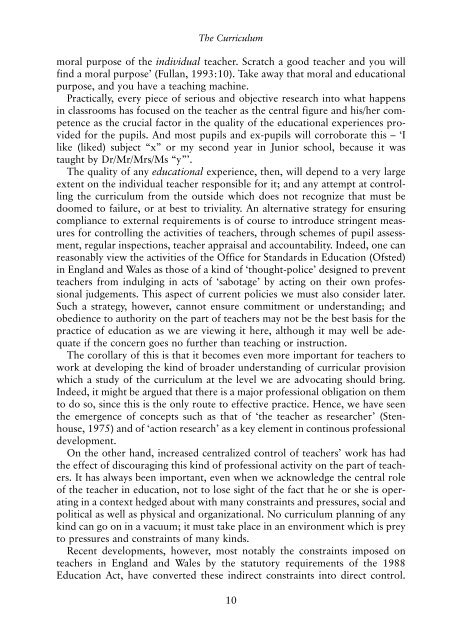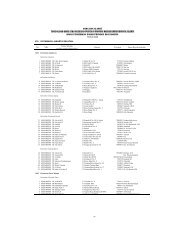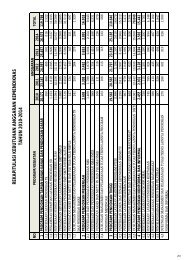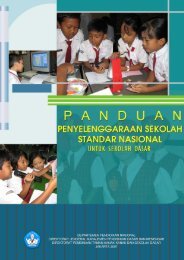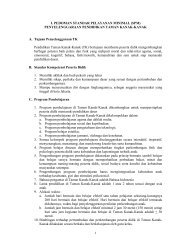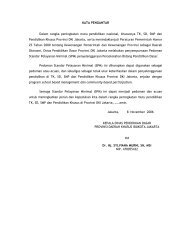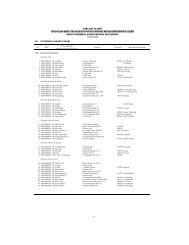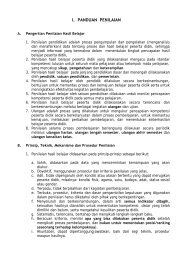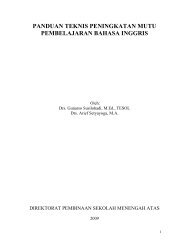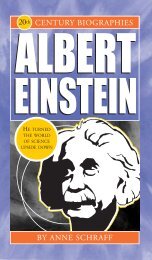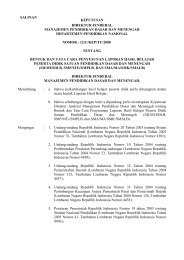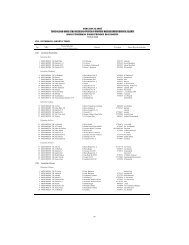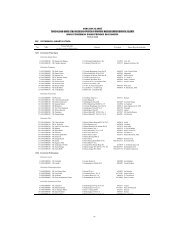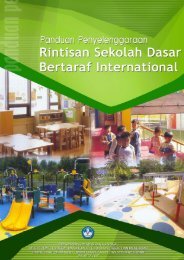The Curriculum - WordPress.com
The Curriculum - WordPress.com
The Curriculum - WordPress.com
You also want an ePaper? Increase the reach of your titles
YUMPU automatically turns print PDFs into web optimized ePapers that Google loves.
<strong>The</strong> <strong>Curriculum</strong>moral purpose of the individual teacher. Scratch a good teacher and you willfind a moral purpose’ (Fullan, 1993:10). Take away that moral and educationalpurpose, and you have a teaching machine.Practically, every piece of serious and objective research into what happensin classrooms has focused on the teacher as the central figure and his/her <strong>com</strong>petenceas the crucial factor in the quality of the educational experiences providedfor the pupils. And most pupils and ex-pupils will corroborate this – ‘Ilike (liked) subject “x” or my second year in Junior school, because it wastaught by Dr/Mr/Mrs/Ms “y”’.<strong>The</strong> quality of any educational experience, then, will depend to a very largeextent on the individual teacher responsible for it; and any attempt at controllingthe curriculum from the outside which does not recognize that must bedoomed to failure, or at best to triviality. An alternative strategy for ensuring<strong>com</strong>pliance to external requirements is of course to introduce stringent measuresfor controlling the activities of teachers, through schemes of pupil assessment,regular inspections, teacher appraisal and accountability. Indeed, one canreasonably view the activities of the Office for Standards in Education (Ofsted)in England and Wales as those of a kind of ‘thought-police’ designed to preventteachers from indulging in acts of ‘sabotage’ by acting on their own professionaljudgements. This aspect of current policies we must also consider later.Such a strategy, however, cannot ensure <strong>com</strong>mitment or understanding; andobedience to authority on the part of teachers may not be the best basis for thepractice of education as we are viewing it here, although it may well be adequateif the concern goes no further than teaching or instruction.<strong>The</strong> corollary of this is that it be<strong>com</strong>es even more important for teachers towork at developing the kind of broader understanding of curricular provisionwhich a study of the curriculum at the level we are advocating should bring.Indeed, it might be argued that there is a major professional obligation on themto do so, since this is the only route to effective practice. Hence, we have seenthe emergence of concepts such as that of ‘the teacher as researcher’ (Stenhouse,1975) and of ‘action research’ as a key element in continous professionaldevelopment.On the other hand, increased centralized control of teachers’ work has hadthe effect of discouraging this kind of professional activity on the part of teachers.It has always been important, even when we acknowledge the central roleof the teacher in education, not to lose sight of the fact that he or she is operatingin a context hedged about with many constraints and pressures, social andpolitical as well as physical and organizational. No curriculum planning of anykind can go on in a vacuum; it must take place in an environment which is preyto pressures and constraints of many kinds.Recent developments, however, most notably the constraints imposed onteachers in England and Wales by the statutory requirements of the 1988Education Act, have converted these indirect constraints into direct control.10


